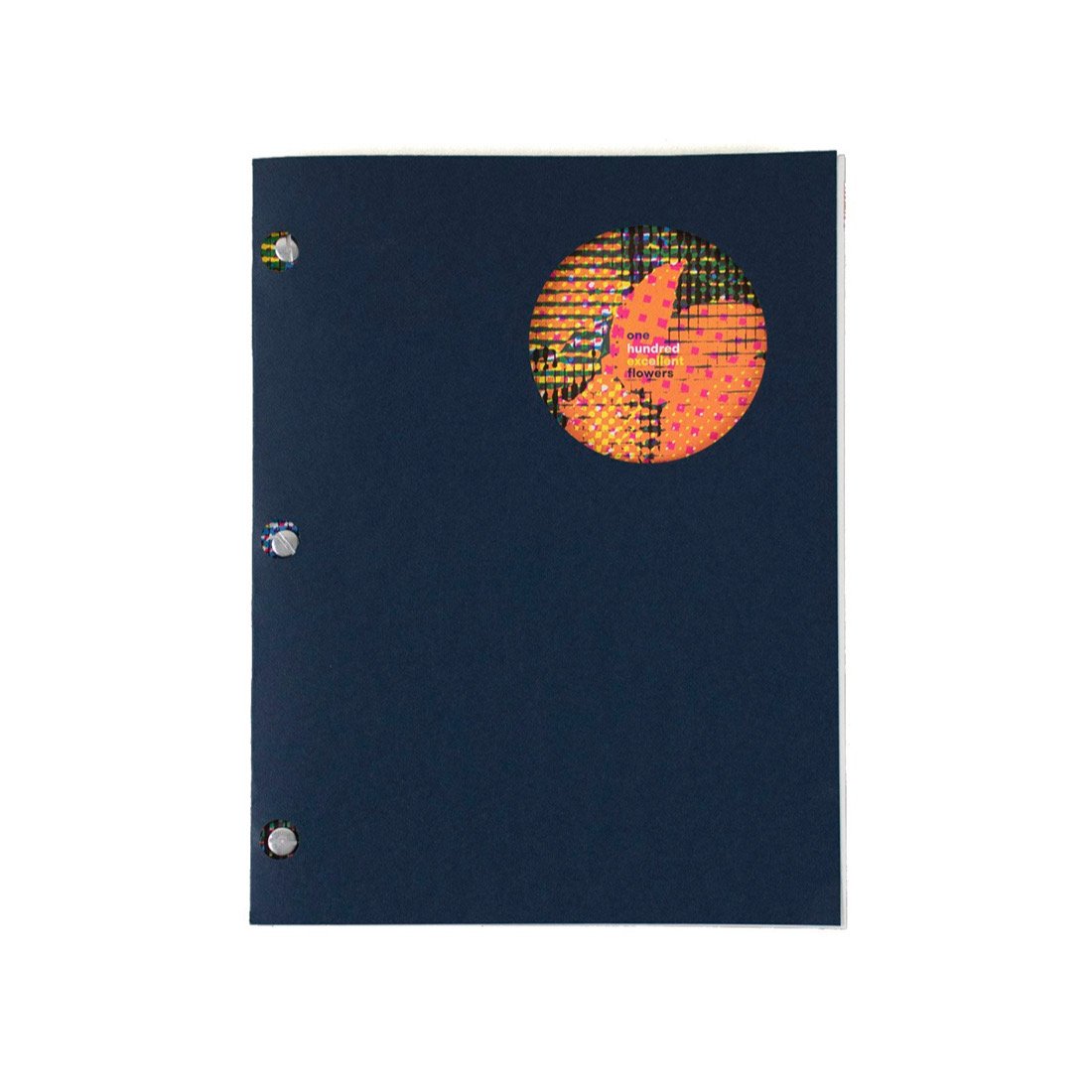One Hundred
Excellent Flowers






Clifton Meador
MEET THE ARTIST
Clifton Meador combines writing, photography, printmaking, and design to make books that explore how the narratives of culture, history, and place are the basis for identity. His work is in many collections, including the Library of the Museum of Modern Art in New York, the Victoria and Albert Museum in London, and the Yale Art of the Book collection. His work has been supported by grants from the Rubin Foundation, the NEA, the Soros Foundation for Open Society, and the Social Sciences and Humanities Research Council of Canada. He was twice awarded a NYFA fellowship in Printmaking/Artist’s Books, was a Fulbright Scholar to the Republic of Georgia, and was the 2013 recipient of the MCBA Book Prize. He led the MFA in Book and Paper program in the Interdisciplinary Arts Department at Columbia College Chicago, collaboratively founded an experimental graduate program at SUNY New Paltz—the Visual Research Laboratory—and was director of Nexus Press in the 1980s. Before joining the academy, he worked as a pressman at several commercial, literary, and small press production facilities, including Open Studio, Nexus Press (where he was the director for four years), and J. B. Richards. He served as Chair of the Department of Art at Appalachian State University for five years and is now a professor in the Graphic Design and Graphic Communications Management programs there.
ABOUT THE WORK
On February 27, 1957, Mao Zedong gave a speech titled 'On the Correct Handling of Contradictions Among the People.' In this speech, he quoted a poem: 'Let a hundred flowers bloom / Let a hundred schools of thought contend.'
His speech invited citizens to voice their opinions and criticisms of the Communist Party.
It was followed in the summer of 1957 with the Anti-Rightist movement, where between 300,000 and 550,000 individuals were identified as Rightists— most of whom were intellectuals, academics, writers and artists. Mao later said the Hundred Flowers movement had enticed the snakes out of their lairs. The majority of those accused of being Rightists were publicly discredited and lost their jobs or worse.
Historians argue whether Mao was sincere in his desire to encourage free expression and came to regret it, or if the entire Hundred Flowers movement was a trick to expose his enemies.
During the fall of 2018 — like many other people —I became angry at the sense that lying has become an acceptable rhetorical strategy. My anger spread to contemplation of the myriad ways we are being lied to, from politics to marketing. It was late summer in western North Carolina, and I had been photographing flowers since spring. I had been thinking, as I have for a long time, about how photographic representation presents nothing other than itself — a printed image is just ink on paper, not a magic window into an alternative reality. The way an image gets printed — the technical issues in printing — are a large part of the reception of the image. I determined to make the technical necessities of image production into an issue in this piece - interfering with the way a raster creates tone by making it obvious and expressive.
Flowers are a trick to seduce pollinators into helping the plants reproduce. I saw the snack foods as seductions, lies of a different kind, and I took parts of Mao's speech and reiterated it for a consumer's lament.
Fluorescent four-color
offset lithography.
62 pages
8.5 x 11 inches
Post-bound book with die-cut paper wrapper.
To explore more works by Clifton visit his Instagram and check out his website here.
This unique work is priced at $55 at Downtown Books & News.
©2025 AG Studios, LLC. All Rights Reserved. Terms of Service.
